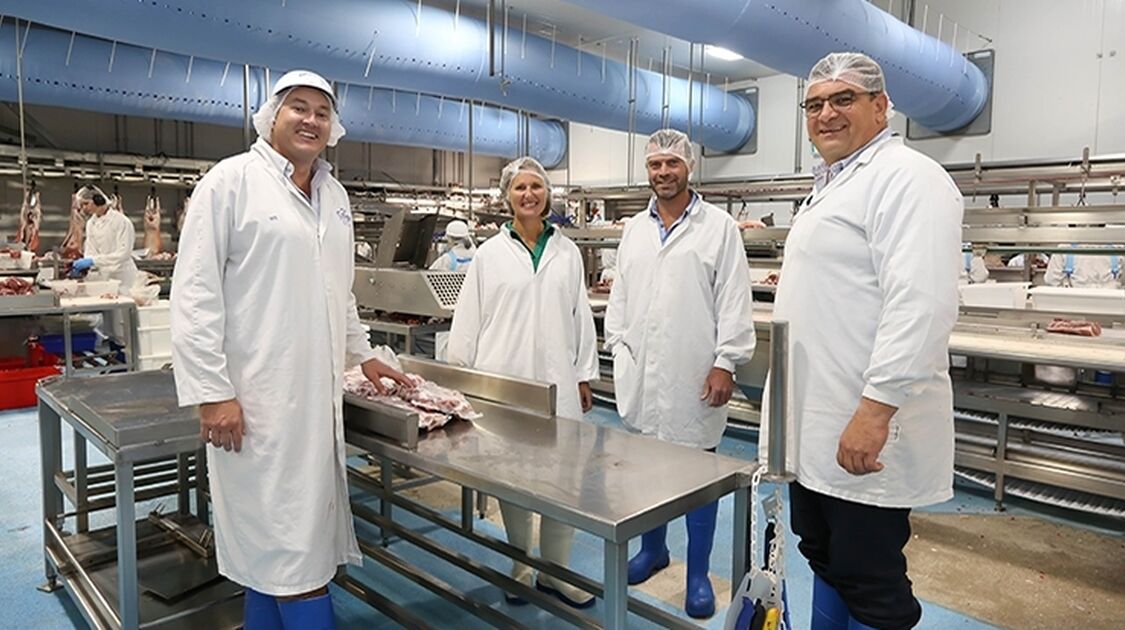Courtesy of Meat and Livestock Australia
World-leading objective measurement technologies in lamb were on show last month at a special event held at Gundagai Meat Processors (GMP) in Gundagai, NSW.
GMP has been working in partnership with Meat & Livestock Australia (MLA) to enable the objective measurement, sortation and future grading of lamb carcases under the new Meat Standards Australia (MSA) cuts-based model.
Guests to the event were given the opportunity to see the technology in action, which can measure hot carcase weight, lean meat yield and intramuscular fat (IMF) in lamb. These measurements can then be inputted into the new MSA model for sheepmeat, which will predict the eating quality of nine cut by cook method outcomes (grill and roast) for each carcase.
“This is an incredibly exciting development and one we have been working towards for a number of years,” said Jason Strong, MLA Managing Director. “As an industry we are not far off MSA grading for lamb, much like we already do in beef.
“These technologies enable the development of value-based payment systems based on eating quality, leanness and other attributes desired by consumers,” said Mr Strong.
“Feedback provided to producers based on these technologies can be used to incentivise continual on-farm improvement in lamb production, ensuring greater compliance and a greater ability to consistently meet market specifications.”
The technologies and methods on show at GMP included:
Dual Energy X-Ray Absorptiometry (DEXA) - an objective measurement tool to assess lean meat yield, bone and fat composition of each carcase.
MEQ Probe - a needle probe that uses spectral imaging to measure the amount of intramuscular fat in lamb carcases.
MSA grading - uses hot carcase weight, lean meat yield and intramuscular fat to predict a quality score for nine cut by cook methods for each carcase.
Health 4 Wealth - a standardised approach to the collection and feedback of animal disease and defect data to producers.
Radio frequency identification - hook tracking of processing gambrels which are read to provide individual carcase tracking and sortation.
Feedback to producers – enhanced systems which communicate the performance of individual animals in the consignment against the target specification, which can now include new eating quality measures.
For Will Barton, Chief Executive Officer at GMP, these technologies have the potential for processors and brand owners to segment their production and generate greater returns.
“These technologies provide us a more in-depth analysis of intramuscular fat and lean-meat yield in lamb, so we can use this information to market our brand and products to better meet the needs of our customers,” said Mr Barton.
“Traditionally, lamb in Australia is of a high-quality but subject to variations of quality. These new technologies allow us to grade and sort carcases to achieve a more consistent and improved eating quality.
“Producing MSA-quality lamb will help us to compete with other premium proteins. With this technology, our lamb will be of the consistently high quality that our domestic and international customers expect. Aussies who love their lamb have a lot to look forward to.” said Mr Barton.
